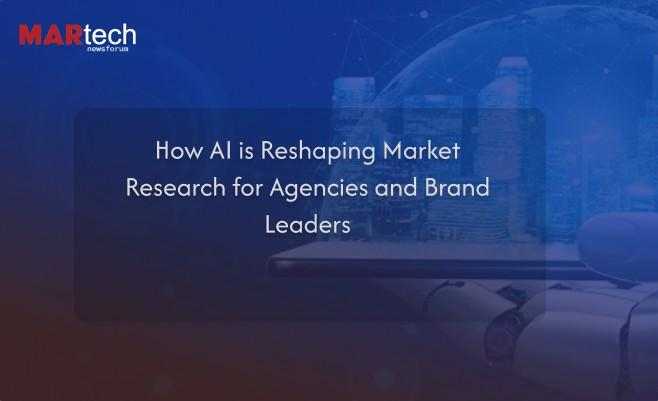
In the digital age, understanding the customer is more important—and more complex—than ever. Traditional market research methods, while still valuable, often struggle to keep pace with rapidly shifting consumer behavior, fragmented media channels, and an ever-increasing volume of data. Enter artificial intelligence (AI), which is transforming the landscape of market research by providing smarter, faster, and more actionable insights.
From automating data collection to uncovering hidden patterns in consumer behavior, AI technologies are empowering marketers and agencies to make decisions with a level of precision that was once unimaginable.
1. Real-Time Data Collection and Analysis
One of the most impactful ways AI is changing market research is through real-time analytics. Rather than relying solely on retrospective data, AI tools can analyze live data streams from multiple sources, including:
- Social media platforms
- CRM systems
- Customer feedback
- Web and mobile app behavior
- E-commerce transaction logs
With Natural Language Processing (NLP), AI can extract sentiment and intent from thousands of customer reviews, comments, and conversations—at scale. This allows marketers to quickly detect shifts in perception, brand sentiment, and emerging trends.
Example:
A major beverage brand used AI-powered social listening tools during a product launch to track real-time consumer feedback. Within 24 hours, they identified an issue with packaging design and rolled out corrective messaging across channels—averting a potential PR crisis.
2. Predictive Insights and Forecasting
While traditional research answers the question “What happened?”, AI answers “What will happen next?”
Machine learning models can process years of historical customer and sales data to predict:
- Upcoming purchasing behaviors
- Likely customer churn
- Optimal campaign timings
- Market demand shifts
These insights help agencies and brand leaders move from reactive to proactive strategies—optimizing marketing budgets, supply chains, and creative messaging with greater confidence.
3. Hyper-Personalized Consumer Segmentation
AI unlocks deep, behavioral segmentation by analyzing patterns across various data points such as browsing habits, purchase frequency, and even emotional responses. This allows brands to create highly tailored messaging strategies for individual consumer segments.
With AI, micro-segmentation is no longer a manual, time-intensive process. Instead, it becomes dynamic—constantly updating based on live data. This leads to better customer experiences and stronger engagement.
Example:
A global cosmetics brand leveraged AI-driven segmentation to identify a new persona—”eco-conscious, minimalist buyers”—which wasn’t visible through traditional demographic analysis. The company created a campaign tailored to this segment, resulting in a 22% increase in conversions.
4. Automation of Research Workflows
AI doesn’t just uncover insights—it streamlines the entire research process. Tasks that once required days or weeks can now be completed in hours:
- Survey design and optimization through AI chatbots
- Automatic transcription and sentiment analysis of interviews
- Instant report generation with dynamic visualizations
- AI-powered heatmaps and eye-tracking for UX studies
This automation allows agencies to reallocate resources from grunt work to high-value strategy and creativity.
5. Voice of the Customer (VoC) at Scale
AI tools enable brands to tap into the Voice of the Customer at a massive scale. Voice analytics, sentiment detection, and emotion AI help analyze unstructured data like:
- Customer service calls
- Open-ended survey responses
- User-generated content
By aggregating this feedback in real time, brand leaders can spot opportunities and pain points long before they reach critical mass.
6. Democratization of Market Research
AI-powered platforms are lowering the barrier to entry for conducting market research. What was once accessible only to large corporations with massive budgets is now available to mid-size and even small businesses.
No-code AI research platforms allow marketers and brand managers to:
- Design and run custom studies
- Analyze complex datasets
- Visualize trends using easy-to-use dashboards
This democratization fosters innovation and competition across the market landscape.
7. Ethical Considerations and Human Oversight
While AI brings immense benefits, it also introduces new ethical challenges. Brand leaders and agencies must remain vigilant in:
- Preventing algorithmic bias
- Ensuring data privacy and compliance (e.g., GDPR, CCPA)
- Maintaining transparency with customers
- Avoiding over-reliance on machine-generated insights
Human oversight is crucial. AI should augment, not replace, human judgment—especially when interpreting nuanced customer emotions or making high-stakes brand decisions.
8. The Future: AI + Generative Capabilities
Generative AI is opening up even more possibilities. Imagine AI not only identifying consumer trends but also creating marketing concepts, mock-ups, or even video storyboards aligned with those insights.
Platforms integrating generative AI with market research could allow:
- AI-driven focus group simulations
- Auto-generated survey summaries and personas
- Creative briefs built from behavioral data
These capabilities are already emerging in tools like OpenAI’s GPT models, Google’s Gemini, and enterprise-focused platforms like Qualtrics or Brandwatch.
Expert Insight
“AI is fundamentally changing the DNA of market research. We’re no longer in the business of collecting data—we’re in the business of understanding behavior in real time and predicting the next move,”
says Priya Deshmukh, Chief Insights Officer at NextWave Strategy, a leading global agency.
Conclusion: A Smarter Way Forward
Artificial intelligence is not simply an upgrade to existing market research—it’s a paradigm shift. Agencies and brand leaders who embrace AI are discovering a significant competitive edge: deeper customer insights, faster decision-making, and campaigns that truly resonate.
As we look to the future, one thing is clear: the brands that listen intelligently will lead the market.